
Susan Fratzke
Senior Policy Analyst
Susan Fratzke is a Senior Policy Analyst with MPI’s International Program, based in Germany, where she conducts comparative research on asylum policy, forced migration, and refugee resettlement and complementary pathways.
|
Media Requests |
Ms. Fratzke has authored or contributed to numerous reports assessing the role of refugee pathways and sponsorship in addressing humanitarian needs and displacement. She served as a lead researcher on a 2018 report for the European Commission that proposed an EU approach to the role and development of refugee private sponsorship in Europe. Her work conceptualizing the role of sponsorship in developing humanitarian pathways has been widely cited internationally in research and policy documents.
She also leads work on national asylum systems and the role of international and regional cooperation in maintaining access to protection in response to cross-border humanitarian displacement. She manages an MPI-Robert Bosch Stiftung initiative that is examining ways to strengthen national asylum systems worldwide. She has also been a core contributor to MPI’s longstanding work on the Common European Asylum System (CEAS).
Ms. Fratzke has worked for the U.S. State Department’s Bureau of Population, Refugees, and Migration in Brussels and Washington, DC, and as a coordinator for an adult literacy program serving resettled refugees in Minnesota. She holds an MA in German and European studies, with a concentration in European migration policy, from Georgetown University’s School of Foreign Service. She also earned a certificate in refugees and humanitarian emergencies from the Institute for the Study of International Migration at Georgetown.
Bio Page Tabs
This event organized by MPI and CWS, one of nine U.S. refugee resettlement agencies, examined the refugee resettlement system and complementary pathways that represent untapped opportunities for refugees to improve their lives through migration.
MPI and MPI Europe experts discuss the effects of the coronavirus pandemic on asylum systems in Europe and North America, as well as in developing regions, where 85 percent of refugees live. During this freeform conversation, our analysts also assess the implications for the principle of asylum and the future for a post-World War II humanitarian protection system that is under threat.
This MPI Europe webinar examines innovative ways to better design and implement predeparture orientation programs for resetttling refugees. The discussion features observations from a refugee who went through an orientation program before being resettled in the Netherlands, and a resettlement agency official in Norway.
The refugee and migration crisis in Europe thrust the issue of legal pathways to the top of European Union (EU) and national government agendas, but progress has so far suffered from a lack of strategic thinking on how legal channels can work together and how to overcome design and implementation challenges. This webinar offers insights from EU Member States on how existing, new, and untapped legal pathways—such as resettlement, community-based sponsorship, and family reunification—can interact with other humanitarian policies and fit into a larger protection strategy. The discussion also highlights two MPI Europe publications, Tracing the Channels Refugees Use to Seek Protection in Europe and Engaging Communities in Refugee Protection: The Potential of Private Sponsorship in Europe.
Marking the release of an MPI Europe report commissioned as part of the EU-FRANK project, this webinar examines critical gaps in the research and evaluation of refugee resettlement programs and recommendations for improving evidence gathering and knowledge sharing between resettlement countries.














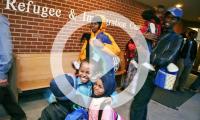
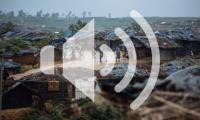
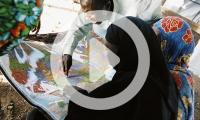
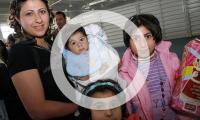
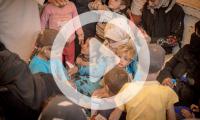
Achieving Meaningful International Cooperation on Displacement: Can the 2023 Global Refugee Forum Deliver?
When Emergency Measures Become the Norm: Post-Coronavirus Prospects for the Schengen Zone
Coronavirus Is Spreading across Borders, But It Is Not a Migration Problem
The Future of Refugee Resettlement: Made in Europe?
International Experience Suggests Safe Third-Country Agreement Would Not Solve the U.S.-Mexico Border Crisis
Three Things the European Union Can Do to Support Private Sponsorship for Refugees
Europe Pushes to Outsource Asylum, Again
Global Refugee Summits Offer Reasons for Both Disappointment and Hope